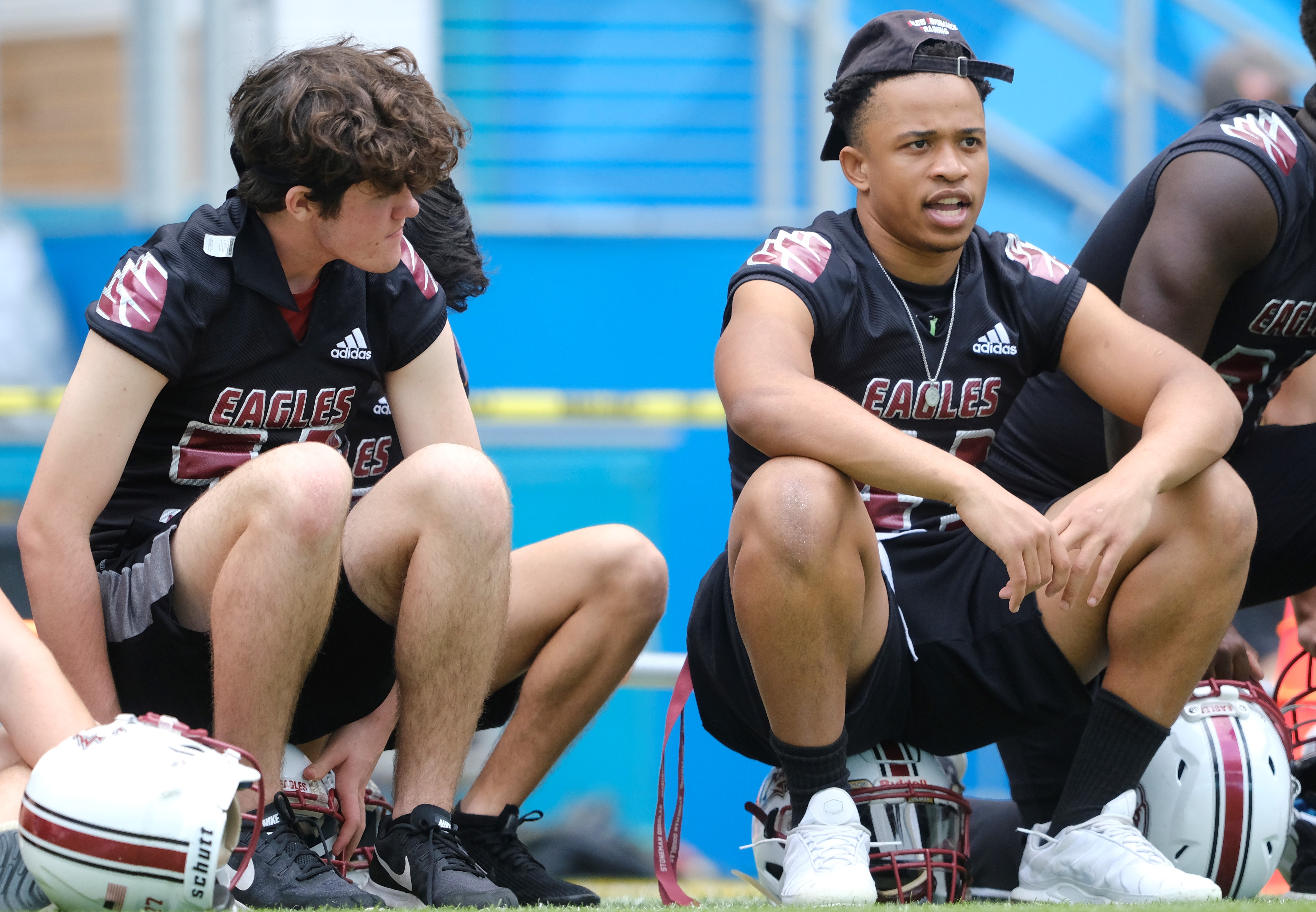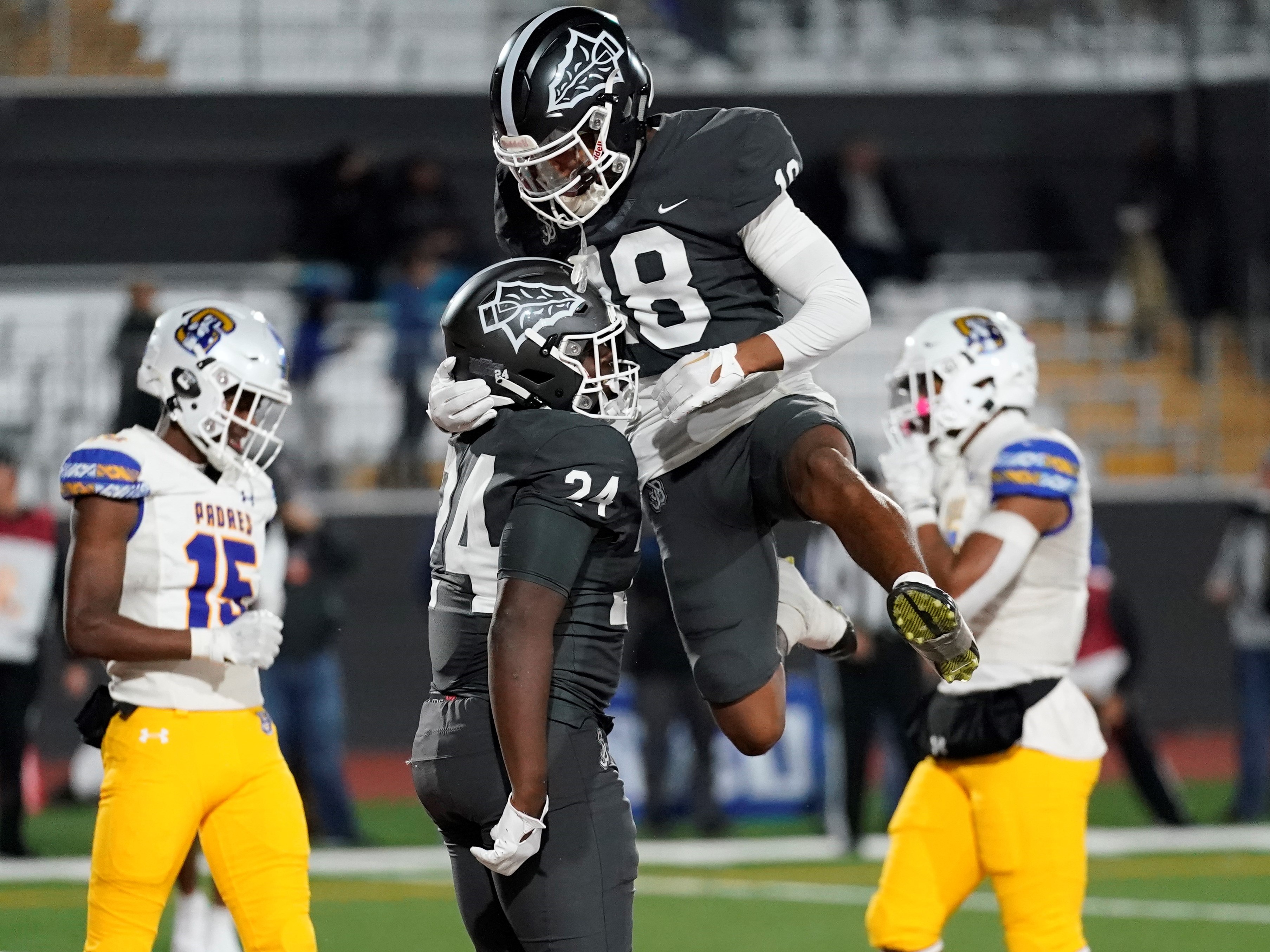How to Grow Youth Participation in Tackle Football
Youth participation in sports overall has declined 13% over the last decade – and tackle football is no exception. Reigniting momentum across the sport means doing two things:
- Encourage more parents to enroll their kids in tackle football
- Identify kids who currently play flag that would be interested or well-suited to make the exciting leap to tackle football
Despite the decline in participation, you’ve seen first-hand the benefits and positives that tackle football can provide. Here are some helpful talking points, interesting facts and figures and considerations to help parents see for themselves.
Ten Reasons to Play Youth Tackle Football
Teaches Teamwork: Tackle football instills the critical value of teamwork and teaches kids how to play and interact well with others, no matter what age they enter the sport at.
Instills Sportsmanship: Tackle football teaches kids about what it means to be a good sport, fostering them to become a role model for what it looks like to celebrate the wins and learn from the losses.
Forms Healthy Habits: Tackle football represents a key tool in helping kids develop life-long healthy habits – instead of staying inside playing video games, tackle gets them up, gets them out and gets them exercising.
Promotes Fitness: Tackle football encourages physical activity and healthy movement for kids at all levels of athletic ability, ensuring kids spend quality time away from the screen. They don’t need to be the fastest on the field to be a good player.
Creates Community: Tackle football fosters a welcoming and supportive community for kids to be a part of and grow with across their journey with the sport. Plus, it’s a true scholastic sport, so it also emphasizes community for kids in an at-school setting.


Inspires Parent-Child Bonds: Tackle football generates moments for parents and kids to bond over a shared love of a sport, from playing catch in the backyard to following your favorite professional teams together.
Offers Long-Term Options: Tackle football provides an avenue for kids’ long-term participation with a prestigious sport, from youth scholarships to other opportunities to continue their journey, even at the collegiate level.
Builds Resilience: Tackle football equips kids with the skills needed to be resilient and learn to independently pick themselves up when things get challenging.
Fosters Leaders: Tackle football helps teach and instill what it means to be a leader, empowering kids with ways to take initiative and show responsibility for their actions both on and off the field.
Generates Discipline: Tackle football provides a hands-on approach to teaching kids how to be disciplined, while also integrating useful structure and organization in their lives.
Answering Common Questions from Parents
Safety is my number one priority. Will my child be protected playing tackle?
There have been significant measures put into place across youth programs that work to keep kids protected and healthy:
- Yearly health and safety trainings for coaches.
- Coaching certifications to teach proper technique around tackling and game play.
- Enforcement of standard game rules and penalties.
- Keeping informed of new advancements in safety gear and protocols.
My child is intimidated to start playing. Will they fit in with the other players?
Tackle coaches and other staff members diligently work to ensure all kids, no matter skill level, size or position on the field, enjoy playing the sport. Plus, coaches also have a zero-tolerance policy for bullying to keep the atmosphere on the field competitive yet friendly.
I’ve heard tackle can be demanding — will my child be able to keep up?
There are stringent requirements in place for coaches to receive consistent trainings to make sure all kids get both the physical and emotional attention they need to find success within the sport – from one-on-one drills to focus in on areas for improvement, to team check-ins to take a pulse on morale.
What’s the connection between flag and tackle?
Flag is a natural entry point into the world of football, often happening at a younger age for kids – it’s a place where they can learn the fundamentals of the sport before taking the game to the next level with tackle. In fact, over a third of surveyed kids who quit flag decide to start playing tackle. It’s the ideal gateway into kids having a long and successful journey with football.
Survey Says...
Benefits of playing tackle football
- 59% of surveyed parents of current tackle players agree that discipline was a key benefit to impact their choice.
- Over half of all surveyed parents agree that developing friendships with teammates helped contribute to their child’s love of the game.
- Surveyed parents agree that leadership is a benefit that is more unique to tackle compared to other semi-contact sports.
- 72% of surveyed parents agree that flag football is useful and/or necessary before transitioning to tackle.
Barriers to playing tackle football
- 50% of surveyed parents and 44% of surveyed current tackle players have injury concerns.
- 33% of surveyed kids who quit tackle do so because of the physical or emotional demands of the sport.
- 31% of surveyed kids who quit tackle do so because of performance pressure from teammates, and 21% because of bullying.
- 25% of surveyed kids who quit tackle do so because they don’t have enough training on how to tackle properly.
- For some, playing football is just too expensive. Less than 50% of kids in lower income households (<$50k) play sports.
































